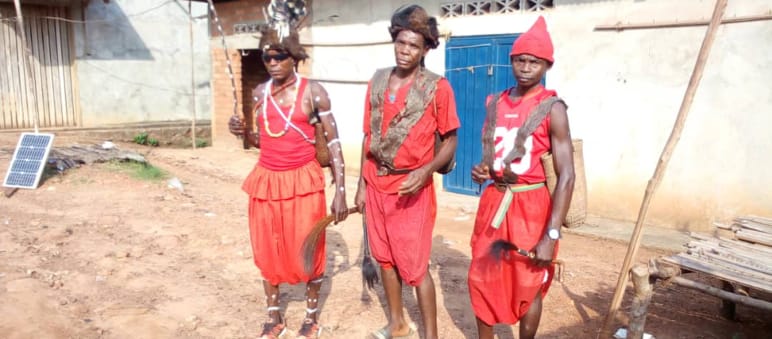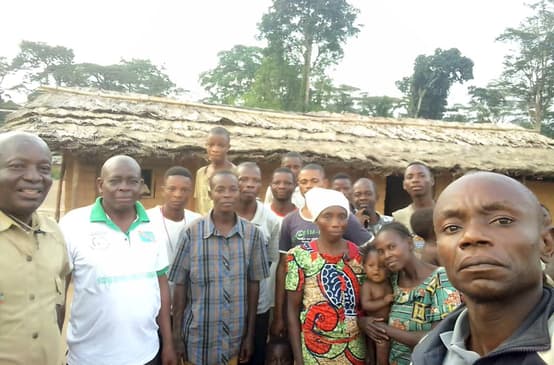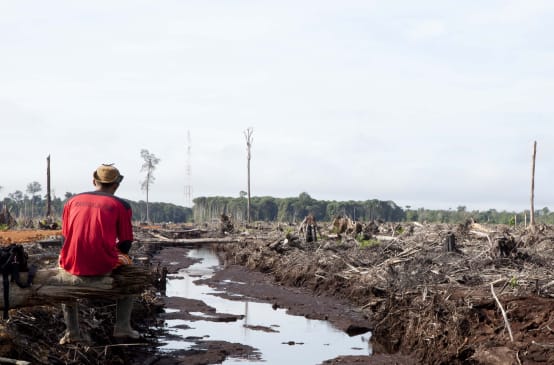
Development banks shirk responsibility for victims of land grabbing and violence
: DEG, a German development organization, sold its shares in the Congolese plantation company PHC at the end of February. DEG and other development banks had turned a blind eye to the company’s land grabs and acts of violence when they originally invested $150 million in the oil palm plantations. The current development could leave local people vulnerable to the whims of the new investors.
The investment in Plantation et Huileries du Congo (PHC) in the Democratic Republic of the Congo is an example of the failure of development banks to prevent the impoverishment, dispossession and oppression of local people in the global South.
A consortium of several development banks had invested more than $150 million in PHC and its former owner Feronia Inc. over a nine-year period. DEG, a German development finance organization, invested $16.5 million in 2015. Now, together with DEG, development banks from Belgium, the UK and the Netherlands have sold their stakes for an undisclosed sum.
Serious human rights violations and environmental crimes had been committed both before and during the investment period, with at least 15 people arbitrarily arrested and two villagers killed by PHC security forces in early 2021. The land for the concessions had originally been grabbed from the local people during the Belgian colonial period.
The development banks bear responsibility for the scandal because they owned a majority stake in the company for years, had a strong presence on the board and held almost all of the outstanding debt. They did not stop the violence, however. The land conflicts between PHC and the communities remain unresolved.
The exit of the state-owned banks may aggravate the situation for the local population. In 2018, eleven communities submitted an official complaint, expecting their land rights to be finally recognized through a mediation process and to receive compensation. However, the process has not progressed in three years. The banks emphasize that the mediation will continue despite the sale. However, it is not clear how they will have any influence on this without financial interests in PHC.
Responsibility for the process will now be handed over to the company's less than trustworthy new owners and executives: PHC's CEO, Monique Gieskes, was sentenced to six months in prison in 2021. Tensions between the company and the villagers have escalated into violence.
In a joint statement, 30 NGOs from Africa, Europe and the United States emphasize that they will continue to support the communities in the future and hold the development banks accountable for the damage they have caused.
We continue to collect signatures for our petition. Please sign if you have not already done so.
In 2020 the development banks could have eased the plight of local people when PHC's owner, Feronia Inc, filed for bankruptcy.
Instead, PHC was passed on to Kuramo Capital, a private equity firm. The development banks canceled 80 percent of the debt and wrote off all their shares in Feronia.The actual ownership of the company is being disputed in courts in the United States, Canada and the Democratic Republic of Congo. One of the parties to the dispute is led by Kuramo Capital and its investors, which include the Bill & Melinda Gates Foundation, according to a study by the Oakland Institute.
The buyer is Maku Holdings, a subsidiary of Kuramo Capital.
This page is available in the following languages:

DRC: Release the palm oil protesters jailed in Mwingi!
Local activists who oppose the palm oil company PHC in the Democratic Republic of the Congo were jailed following a protest march.

Palm oil
Palm oil is literally everywhere – in our foods, cosmetics, cleaning products and fuels. How could it come to this?